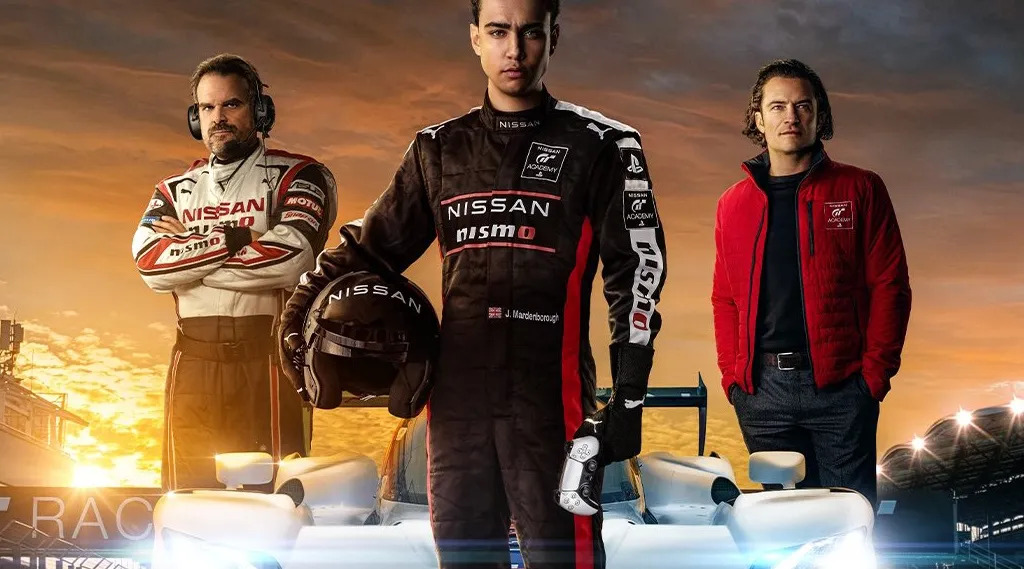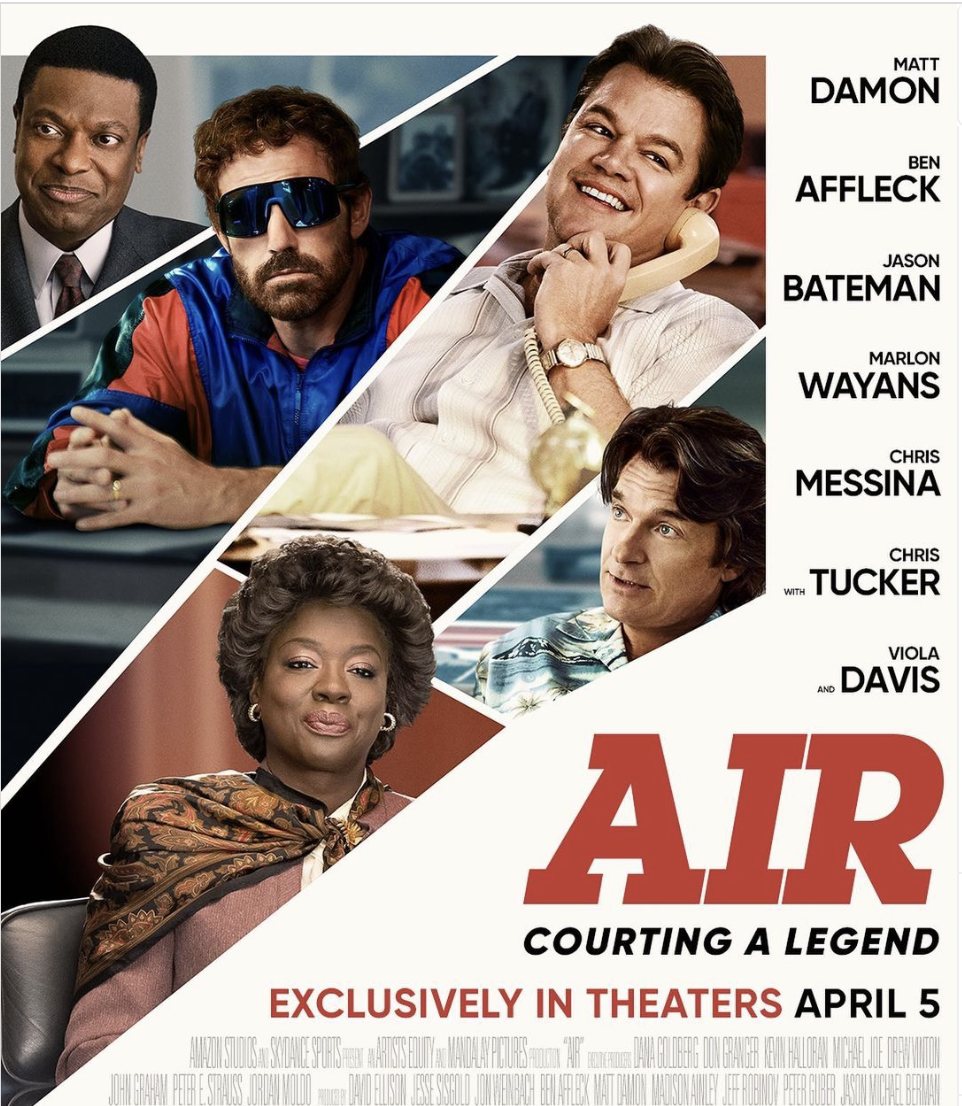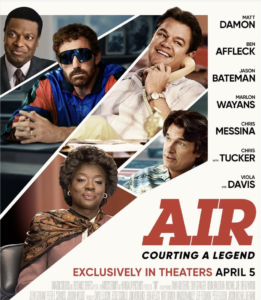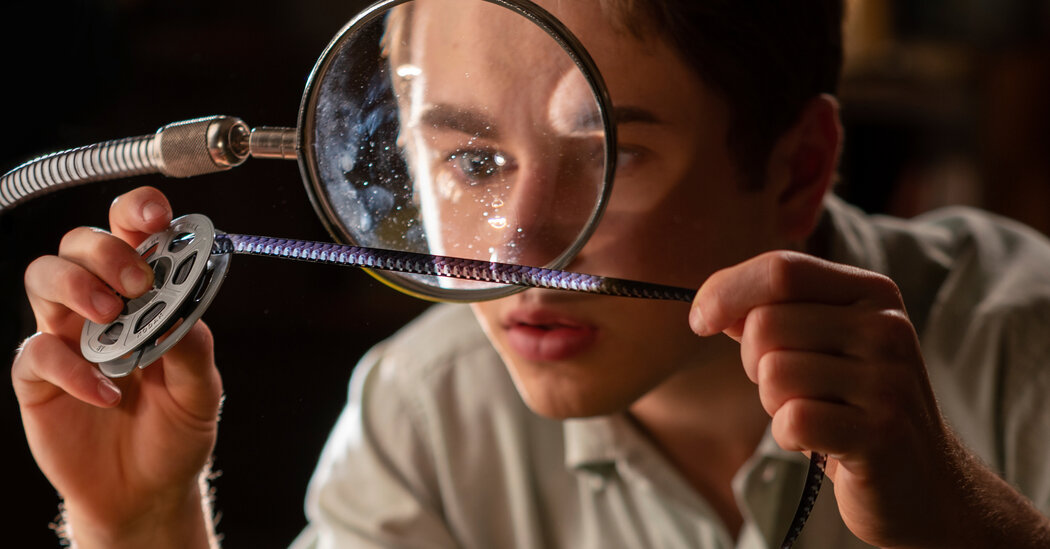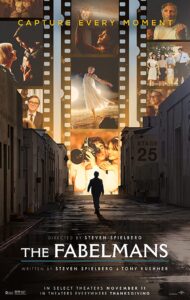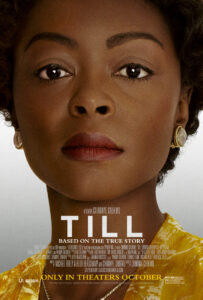Gran Turismo
Posted on August 24, 2023 at 5:13 pm
B +| Lowest Recommended Age: | High School |
| MPAA Rating: | Rated PG-13 for intense action and some strong language |
| Profanity: | Some strong language |
| Alcohol/ Drugs: | Alcohol |
| Violence/ Scariness: | Intense sequences of car races with crashes, explosions, and fire, characters injured and an of-screen death, some disturbing images |
| Diversity Issues: | A theme of the movie |
| Date Released to Theaters: | August 25, 2023 |

That guy is Jann (pronounced Yann) Mardenborough (Archie Madekwe), who lives in Cardiff, Wales, with his parents, Lesley (former Spice Girl Geri Halliwell Horner), and Steve (Djimon Hounsou), a former athlete, now a rail yard worker.
Before the dreams of the teenager at the console, there was the dream of the program itself. It’s not a game, we are reminded in the film; it’s a sim (simulation). Developer Kazunori Yamauchi, an amateur race car driver, was determined to make the most authentically detailed sim in the world so that people like Jann could share the experience of driving 200 miles an hour in the most realistic cars and on the most realistic tracks in the world.
And then there was another dream. Orlando Bloom plays Danny Moore, based on the real-life executive Darren Cox. Moore goes to meet with the top Nissan executives in Tokyo to sell them on his idea: a competition among the 80 million sim players worldwide to get the best of the best, train them, and find one who can really race. It will make car buyers “associate their cars with adventure.” This is like Willy Wonka having a video candy-making competition to pick the next master chocolatier. But Nissan agrees, provided there is a master engineer to keep these competition winners safe. As that engineer, Jack Salter (David Harbour) points out, in a game when you crash, you hit reset. In real life, you could die. (Salter is a composite character, based on some real people and also, apparently, on Yoda and on Burgess Meredith, Clint Eastwood, and every crusty old character actor who has played a young boxer’s grumpy cornerman.)
The lanky Madekwe is an appealing hero, one might say an avatar for us in the audience. And director Neill Blomkamp does a terrific job of making Jann’s time at the console seem “real” and the real racetrack align with the sim. In a funny moment, Jann, who has hardly ever been behind the wheel of any car, uses what he learned in the sim to evade police after a minor fender bender. The racing scenes are dynamic and exciting. And the film parallels a game, with each goal and hazard set out clearly. And then, when the goal is achieved, the next level is unlocked and a new set of more difficult goals and hazards are in place. Most fun, we learn at the end that the real-life Jann, now a veteran of hundreds of races, is the film’s co-producer and stunt driver, a new level-up for him.
Parents should know that this film includes a scary crash with injuries and an off-screen death, other crashes, collisions, and cars repeatedly rolled over. Characters use some strong language and social drinking.
Family discussion: What did Jann learn from his crash? What would you want to create an accurate sim for?
If you like this, try: “Rock Star” and “The Last Straighter”

